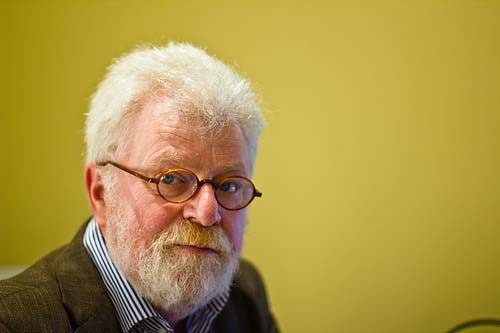The Doha Centre for Media Freedom has been promised “full freedom and full support,” said its new director, 61-year-old Dutch journalist Jan Keulen, during a press conference this morning.
Keulen is the former program manager of Free Voice, a Netherlands-based non-profit media organization that promotes media freedom in developing countries.
He was hired to resuscitate the centre after a two-year hiatus, following former director Robert Menard’s abrupt departure.
Based on remarks made this morning, it is clear that Keulen, who is not a stranger to the Middle East, plans to take a more measured approach with the centre than his predecessor.
“Freedom is not the same thing as anarchy, and we have to build freedom. If you are impatient, freedom will never come,” he told local journalists.
From Keulen’s presentation, it appears the centre will focus on training and research efforts, though it will provide “direct assistance” to journalists in need, for example in Japan and Libya.
Qatar focus
The journalist and author, who has reported out of Beirut, Amman and Cairo, also indicated that he will push for media freedom in Qatar.
“I’m going to work hard to make the centre a credible organization. We want to serve the Qatari media sector,” he said.
When asked about long-awaited reforms to Qatar’s media law, Keulen answered carefully.
“I don’t want to go into the details of the proposed press law – it is my first week on the job, and that would be very arrogant of me,” Keulen said. “But to my understanding, it is a proposal, and we hope to weigh in on the debate.”
Criticism
Five days into the job, Keulen is already drawing the ire of some local journalists, including the Peninsula, which criticized the centre’s choice of director in a front-page editorial today:
The new man at the helm, though well-qualified for the job, is again not a Qatari. That, despite the fact that there is no dearth of Qatari journalists who are qualified and experienced enough to have been selected for the job…
Critics say the Centre would do better to focus on the governments rather than people to impart the lessons of press freedom since it is they—not the people—who are to blame for stifling the media.
But for a state-sponsored media watchdog doing that should be a tough call, suggest critics.
For his part, Keulen, has promised to dedicate his tenure to shoring up media freedom in the Middle East.
In his welcome note on the centre’s website, he states:
There is a huge paradox between the possibilities offered by the digital age –internet, satellite TV and mobile phone- and the challenges they pose to the safety of those who publicly disseminate information.
The MENA region is going through turbulent times. In this context the Doha Centre for Media Freedom has an extremely important role to play to strengthen press freedom and freedom of expression over the internet and other media across the region and the globe. At the same time we want to improve the safety of media professionals, further access to information, and to open new horizons for dialogue, sharing information and knowledge.








